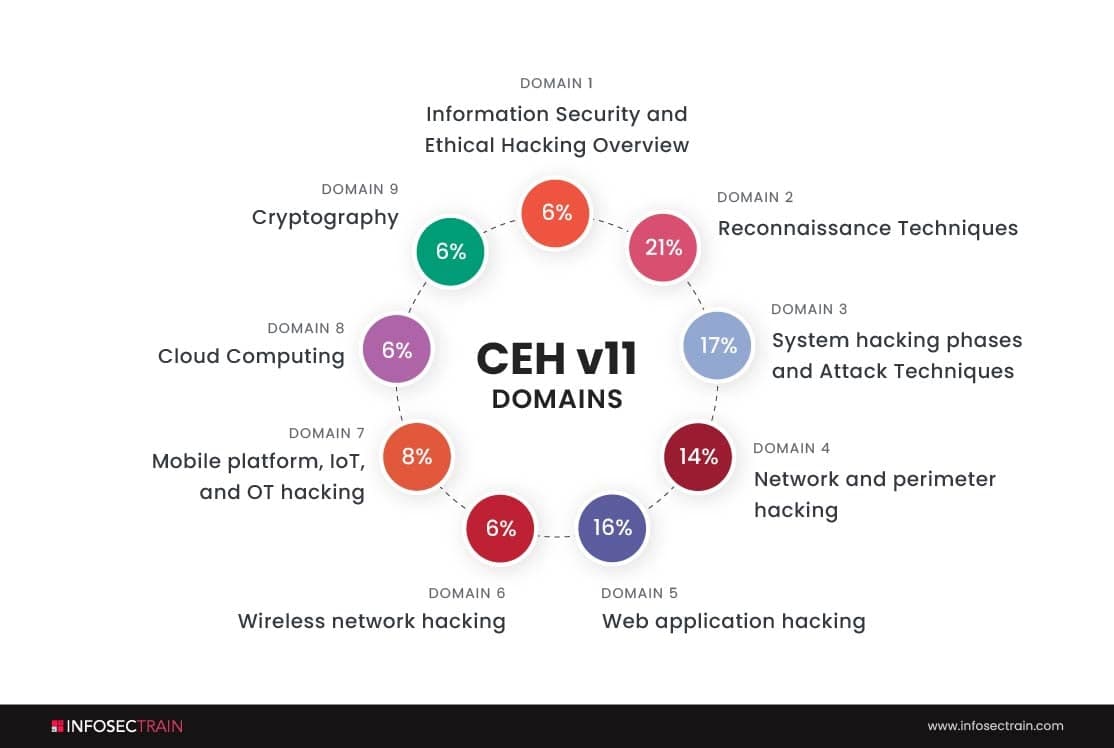Domain 8 of CEH: Cloud Computing

Domains of CEH
- Information Security and Ethical Hacking Overview-6%
- Reconnaissance Techniques-21%
- System hacking phases and Attack Techniques-17%
- Network and perimeter hacking-14%
- Web application hacking-16%
- Wireless network hacking-6%
- Mobile platform, IoT, and OT hacking-8%
- Cloud Computing-6%
- Cryptography-6%

We will discuss the eighth domain of CEH, which is ‘Cloud Computing.’
What is Cloud Computing?
Cloud computing delivers services like databases, software, servers, intelligence, and storage over the internet to provide faster innovation, economics of scale, and flexible resources.
To know the importance of cloud computing, let me tell you about life without cloud computing. Assume you are willing to host a website. You will need to buy a lot of servers, manage the traffic, maintain and monitor the servers. Now to do so, we need both extra money and extra human resources.
- If you consider the cost, buying servers is very expensive.
- Troubleshooting server problems can be tedious and can reduce the efficiency of your business.
- As traffic will change from time to time, your servers will mostly be in the ideal state.
- And storing a lot of data is always a big problem.
So, to help us overcome these problems, cloud computing has come into existence.
In simple terms, cloud computing is a tremendous amount of space available online to store the data, process it, and access it whenever we want.
How does cloud computing work?
Rather than buying complete infrastructure and data centers, organizations can actually rent storage, applications, and other functionalities from cloud providers.
Companies using cloud computing services can avoid much of the upfront cost and complexity of owning and maintaining their own IT infrastructure and instead only pay for the services they have used.
The providers of cloud computing services can benefit from substantial economies of scale by delivering the same services to a broader range of clients.
A few examples of cloud computing
Below are some of the examples of cloud computing we usually use every day.
Zoom: Zoom is a cloud-based audio and video mobile application used on both iOS and Android devices. You can either start or join a meeting by using zoom.
Microsoft Office 365 and Google Docs: Google Docs and Microsoft Office 365 can be used by online users. We can use Google Docs and Microsoft Office 365 for presentations and maintain and store data.
Aws Lambda: Lambda allows developers to execute code without the need to provide or manage servers for apps or backend services. The pay-as-you-go approach scales consistently with an organization in order to accommodate changes in data use and storage in real-time.
The advantages of cloud computing
Cost: Cloud computing is a lot cheaper. Because in the cloud computing environment, we need not buy servers and computers, and there is no need to hire technical staff to maintain these servers.
Speed: The majority of cloud computing services are self-service and on-demand, which means that even massive quantities of computing resources can be provisioned within minutes, typically with just a few clicks, which allows companies a great deal of flexibility.
Security: The majority of cloud providers offer several policies, controls, and technologies that improve your overall security posture, supporting the protection of your data, apps, and infrastructure. So, data saved in the cloud is more secure than files, videos, and images stored on our own devices.
Reliability: Due to the fact that data can be mirrored at multiple redundant sites within the provider’s network, cloud computing makes data backup, disaster recovery, and business continuity more convenient and less expensive.
Performance: A large number of cloud computing services run on secure data centers located globally that are regularly upgraded to the most current generation of fast and efficient computing hardware. As a result, applications run more smoothly, and there are greater savings than using a single data center.
Characteristics of cloud computing
Elasticity: If there is massive traffic, we can scale up our services, and when there is less traffic, we can scale down the services we need, which is also one of the most significant advantages of cloud computing.
Pay-per-use: By having a physical server of our own, we have to pay ideally without considering our usage. But with cloud computing, we can only pay for the servers and resources we have used. This characteristic of cloud computing can save a lot of money.
Self-service provisioning: Almost any workload type can be accelerated on-demand by an end-user. IT administrators are no longer needed to manage and provision computing resources, as end users can provision resources like server time and network storage.
CEH with InfosecTrain
InfosecTrain is one of the leading training providers with a pocket-friendly budget. We invite you to join us for an unforgettable journey with industry experts to gain a better understanding of the Certified Ethical Hacker course. Courses can be taken as live instructor-led sessions or as self-paced courses, allowing you to complete your training journey at your convenience.







 1800-843-7890 (India)
1800-843-7890 (India) 
